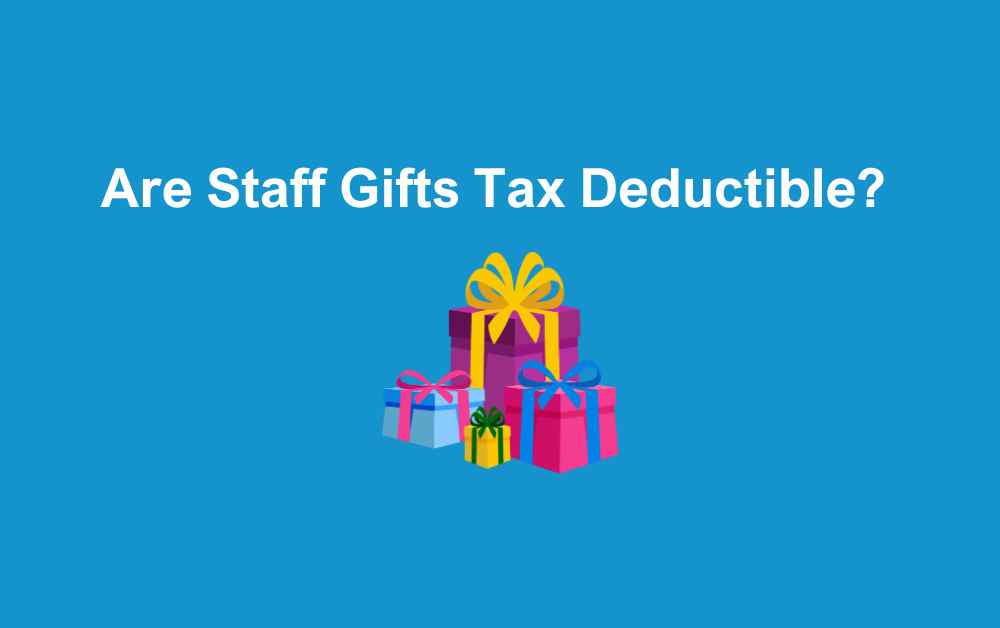As Christmas approaches, many employers are thinking about how to show appreciation for their staff. A common question during this festive season is: Are staff gifts tax deductible? This topic is especially relevant now, given the recent national insurance increases for employers, which have left many businesses seeking ways to save money without compromising on employee satisfaction.
In this guide, we’ll explore the tax implications of Christmas gifts, how the £50 tax-free rule applies, and why thoughtful staff gestures are more important than ever in fostering a positive workplace culture.
Why Consider Staff Gifts for Christmas?
Christmas gifts are a fantastic way to show gratitude to your team for their hard work throughout the year. They also contribute to boosting morale, improving employee retention, and strengthening your company culture. Whether it’s a box of chocolates, a gift card, or a festive hamper, small gestures can go a long way in creating goodwill and reinforcing the loyalty of your workforce.
However, in the context of increasing financial pressures due to national insurance changes and general economic challenges, many employers are wondering how to balance generosity with fiscal responsibility. Understanding the tax implications of staff gifts can help businesses make informed decisions that are both meaningful and cost-effective.
The £50 Tax-Free Rule for Staff Gifts
The UK government recognises that businesses may want to reward their employees without excessive tax burdens. That’s where the trivial benefits exemption—commonly referred to as the £50 tax-free rule—comes into play.
What is the £50 Tax-Free Rule?
The trivial benefits exemption allows employers to give their employees gifts of up to £50 without incurring income tax or national insurance contributions. For the gift to qualify under this rule, it must meet specific criteria:
- Cost Limit: The gift must not exceed £50, including VAT. If the gift exceeds £50, the entire amount becomes taxable.
- Cash Exclusion: The gift cannot be cash or a cash voucher. Non-cash vouchers, such as gift cards, are acceptable.
- Non-Contractual: The gift must not be part of the employee’s contractual entitlement or given as a reward for performance.
- Personal Enjoyment: The gift should not be something the employee is required to use for work purposes.
These criteria make it clear that the £50 tax-free rule is intended for small, discretionary perks rather than performance-related bonuses.
Are Staff Gifts Tax Deductible?
Now to the pressing question: are staff gifts tax deductible? The answer depends on the type of gift and its purpose. Let’s break this down:
Gifts that are Tax Deductible
- Trivial Benefits: Gifts falling under the £50 tax-free rule are not only exempt from employee tax but are also considered a tax-deductible expense for the business.
- Promotional Items: Gifts that prominently display the company logo, such as branded mugs or stationery, are typically deductible. These items must cost less than £50 per recipient.
- Entertainment Gifts: Certain types of staff entertainment, such as Christmas parties, may also qualify for tax relief if they meet HMRC’s conditions.
Gifts that are Not Tax Deductible
- Cash Gifts: Monetary gifts are taxable and do not qualify for tax deduction.
- Performance Bonuses: Gifts tied to performance are viewed as earnings and are therefore taxable and subject to national insurance.
- Exceeding £50: If a gift surpasses the £50 limit, the entire amount becomes taxable and is not deductible.
Understanding these distinctions can help employers optimise their spending on staff rewards while staying compliant with HMRC regulations.
How National Insurance Increases Affect Employers
The recent increases in national insurance contributions have added pressure to many businesses’ budgets. For employers, this rise means higher costs for maintaining their workforce, which can discourage discretionary spending. However, the £50 tax-free rule provides a way to show appreciation without additional tax or national insurance liabilities.
Employers can maximise this rule by carefully planning their Christmas gifts and ensuring compliance with the conditions. This approach not only saves money but also delivers meaningful recognition to employees during the festive season.
Tips for Choosing Tax-Efficient Staff Gifts
To make the most of your Christmas gifting strategy, here are some tips for choosing gifts that comply with the £50 tax-free rule:
- Consider Hampers or Food Gifts Festive hampers, chocolates, or festive treats can be thoughtful gifts that are well within the trivial benefits threshold.
- Use Branded Items Strategically Small branded gifts can be both practical and tax-deductible if they meet promotional item criteria.
- Double-Check Costs When budgeting, include VAT to ensure the total cost per gift stays within the £50 limit.
- Document Your Gifts Keep clear records of all gifts, their costs, and recipients. This is crucial for proving compliance with the tax-free rule in case of an audit.
Other Ways to Save Money While Showing Appreciation
If your budget is tight but you still want to spread festive cheer, consider these cost-effective alternatives:
- Organise a Virtual Celebration: Hosting an online party can be a fun and affordable way to connect with your team without incurring significant expenses.
- Introduce Extra Holiday Leave: Giving staff an extra day off during the festive period is a cost-free way to show appreciation.
- Send Handwritten Cards: A personal note of thanks can carry more meaning than an expensive gift.
The Importance of Staff Appreciation
Amid rising costs and economic challenges, the temptation to cut back on discretionary expenses is understandable. However, neglecting staff appreciation can lead to disengagement, higher turnover, and a negative impact on company culture. Showing gratitude through small, thoughtful gestures not only boosts morale but can also enhance productivity and loyalty.
By leveraging the £50 tax-free rule, employers can strike a balance between fiscal responsibility and employee recognition. The result? A happy, motivated workforce that feels valued, even during challenging times.







